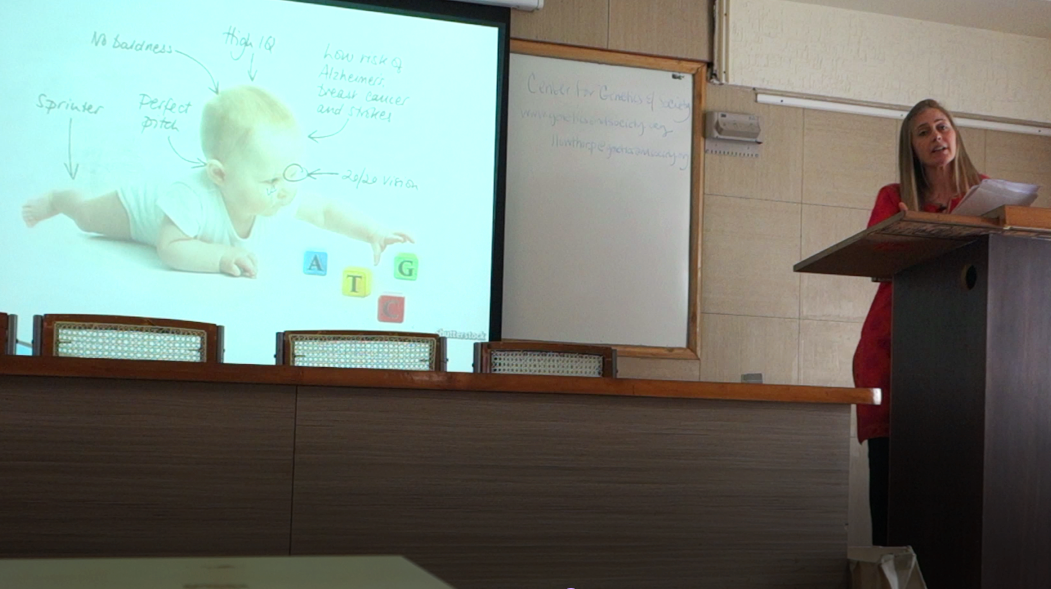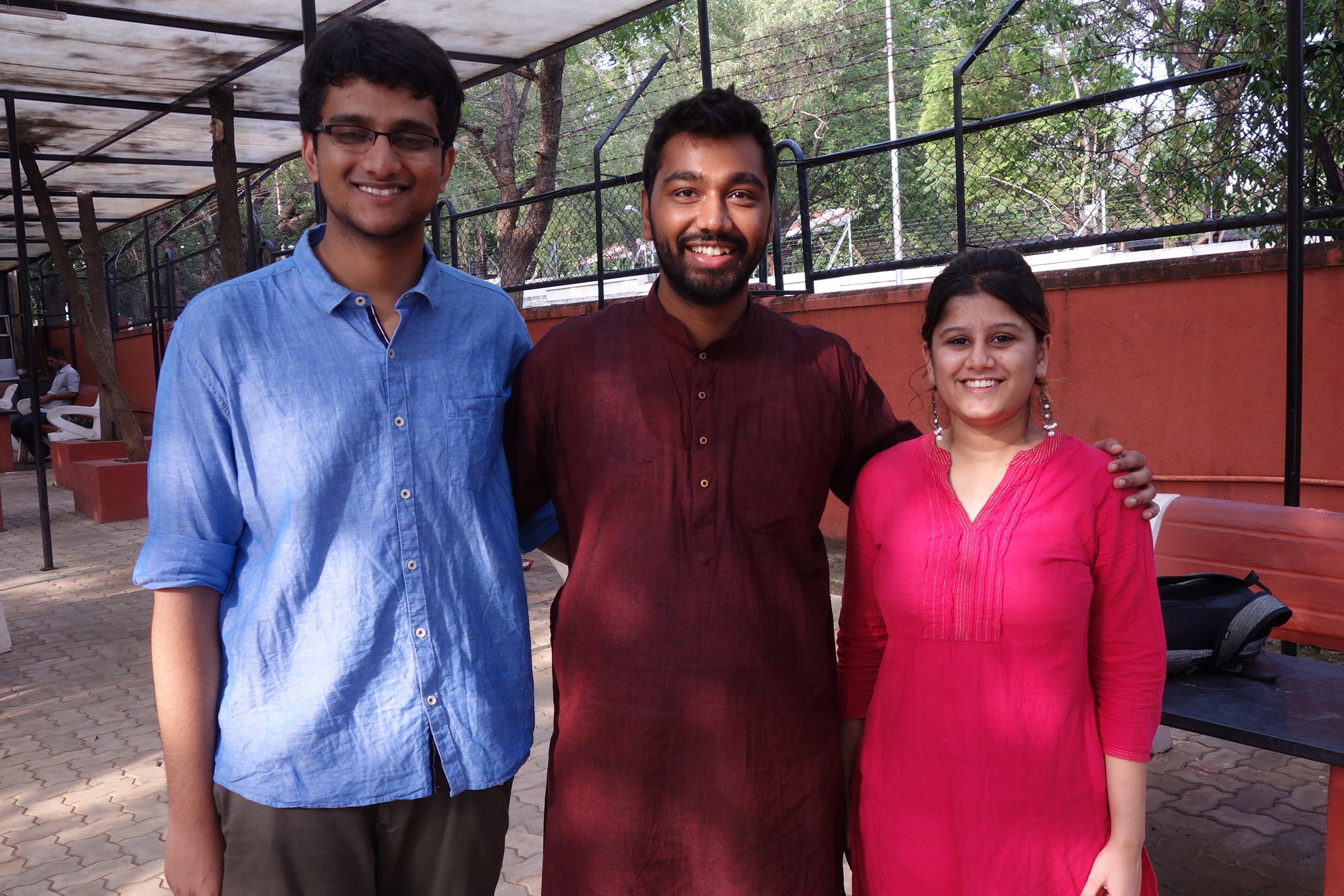CGS Speaks on Human Germline Editing in India

The Center for Genetics and Society’s (CGS) Program Manager and ACLS/Mellon Public Fellow, Leah Lowthorp, recently traveled to India to speak on ethics and legislation related to the prospect of using germline editing for human reproduction. She gave two talks in Bangalore, the biotech hub of India. The first of these was for the Takshashila public policy institute, a respected think tank; the second was for the Law and Technology Society of the National Law School, one of India’s premier law schools.
The Takshashila talk was attended by geneticists, scientists, public policy makers, and university chancellors, some of whom battled Bangalore’s infamous traffic to attend from all over the city. The presentation garnered lively discussion, and sparked interest in some of the institute’s staff to begin work on the issue.
|
Many of the attendees at the National Law School talk were student members of the Law and Technology Society, which publishes the Indian Journal of Law and Technology, India’s first peer-reviewed journal on the subject. Two students, who had worked with Leah as research assistants, gave short presentations after the main talk. Vani Sharma, a third-year law student and aspiring human rights lawyer, presented on the Indian legislative context for human germline editing, and on awareness of the issue among Indian social justice non-profit organizations. Sukhbeer Singh, a third-year public policy student who aspires to a career in science policy, presented on the media landscape of the issue within India, as well as current public policy conversations. This was the first talk of its kind for both venues, on a topic that to date has gone relatively undiscussed in India. |

From right to left: Vani Sharma, Sukhbeer Singh, and Mohnish Mathew (convenor of Law and Technology Society)
|



